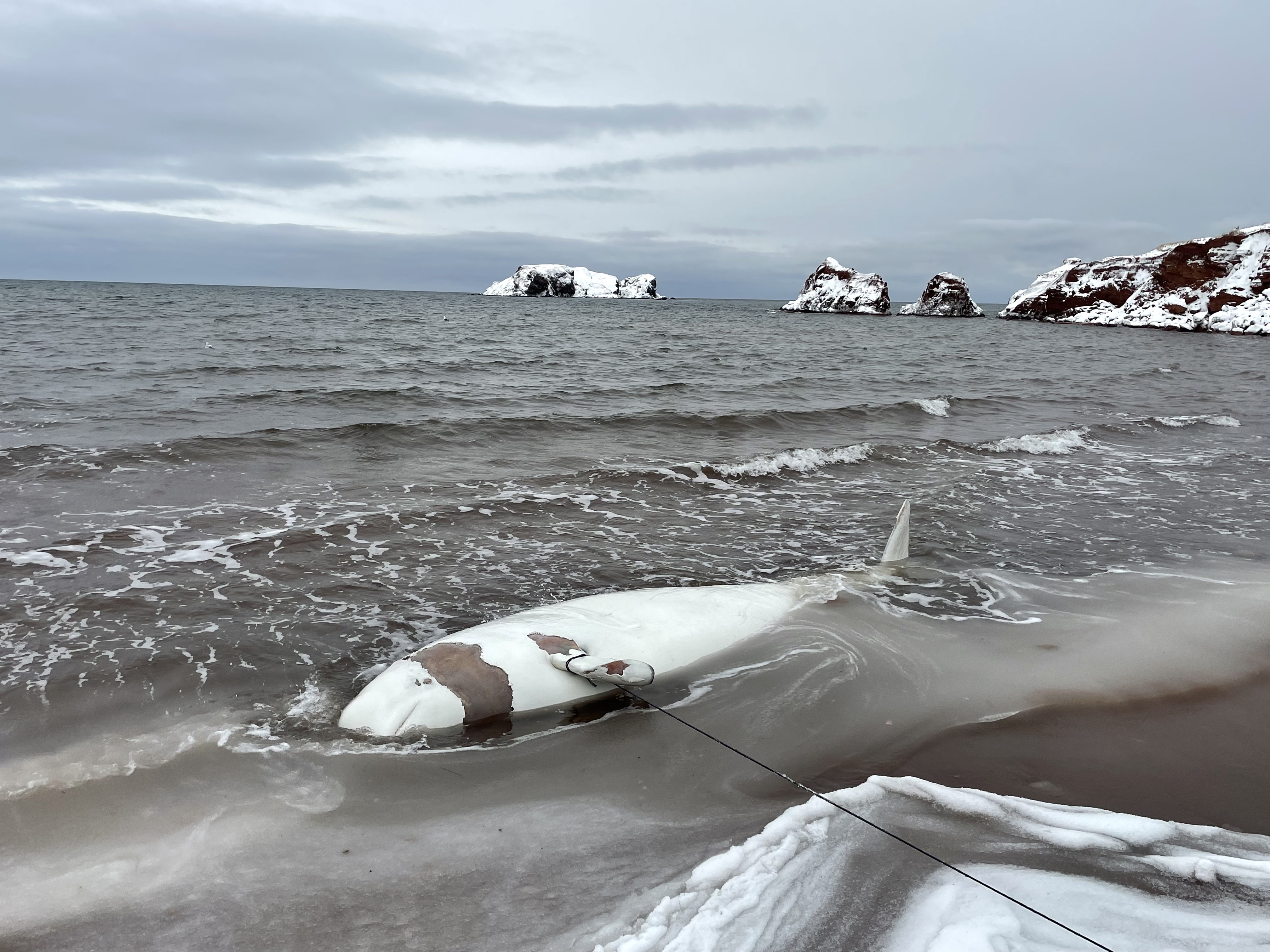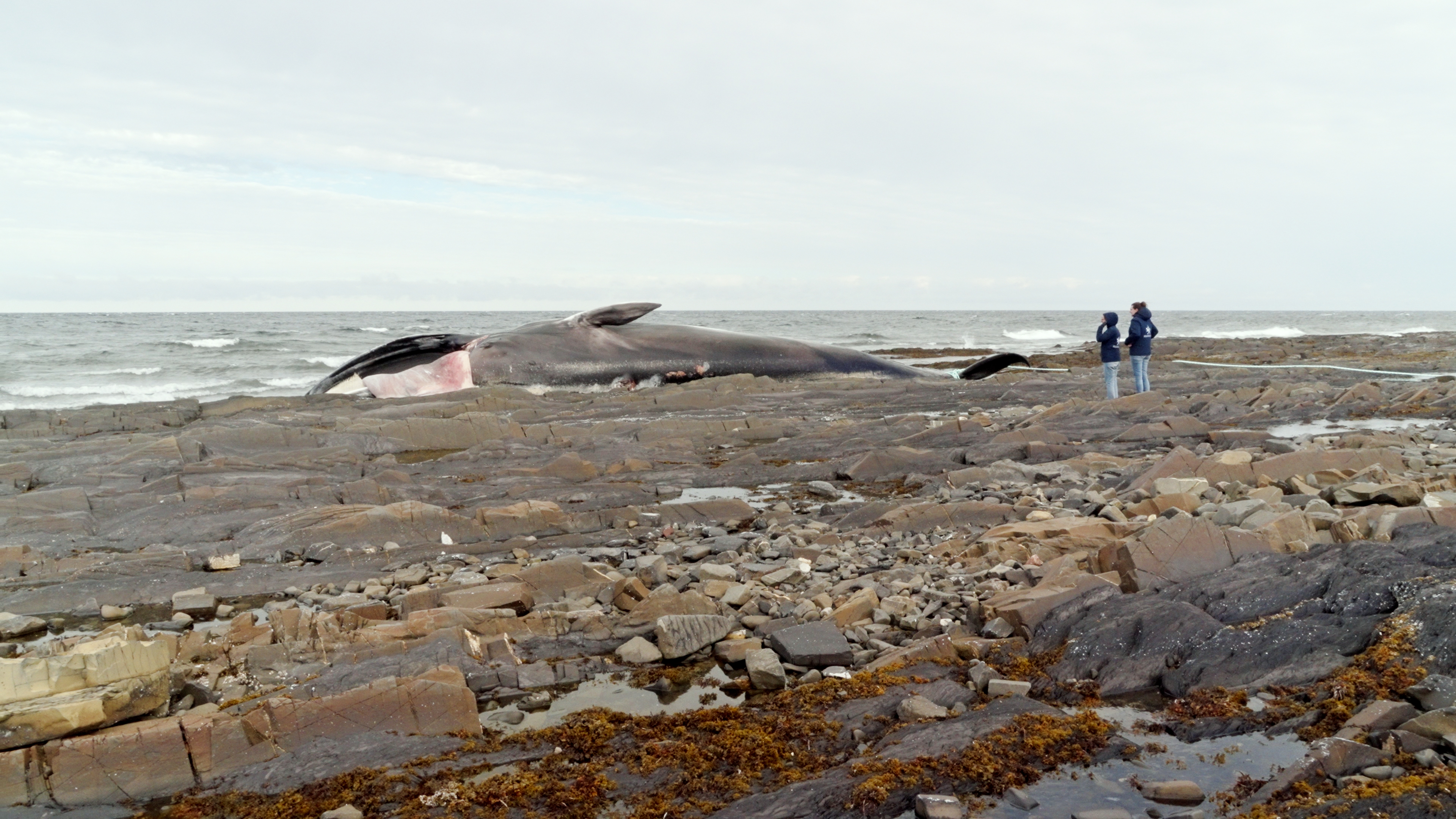
The North Atlantic right whale that washed up on the western dunes in early August will not soon be forgotten; this carcass was in an advanced state of decomposition, to the point that photos had to be submitted to multiple specialists to confirm the species. This stranding had been connected to the whale reported adrift in the area on July 13, a young 6-year-old female with the code number 3923. The bones of the carcass have sparked the interest of the team from the Aquarium des Îles, which is assessing the feasibility of recovering them before they are washed away by powerful storms this fall.
On 14 September, a similar situation unfolds: a witness spots a huge carcass east of Pointe-aux-Loups, on the north dunes. The whale is visible from the road, but is partially immersed. Photos sent by a fishery officer and volunteers help confirm that this is a fin whale, the second largest species of cetacean. It is also possible to confirm that it is a female.

Dead whales beached on the shores of the St. Lawrence are the subject of a research project conducted by Fisheries and Oceans Canada. When resources allow, an attempt is made to retrieve a sample of skin, fat and muscle as well as a portion of baleen, if the latter is still attached to the jaw of the carcass. In this instance, a volunteer from Marine Mammal Emergencies conducted the sampling in collaboration with the DFO. In rather difficult conditions, the agile and motivated volunteer, with the help of a colleague, cut off a piece from the side of the animal and tore off a portion of the baleen. These tissues will be used to analyze (i) the movements and feeding ecology of large rorquals determined based on chemical tracers (mercury isotopes, other trace elements) successively deposited in the baleen and (ii) the level of contaminants accumulated in their flesh. An identification tag bearing the number 401 was placed on the whale’s peduncle and the animal was also measured; this behemoth is about 20 m long.
The regional office of the Department of Sustainable Development, Environment and the Fight against Climate Change (MDDELCC) is currently assessing the case to determine whether the carcass should be removed from the shore or if nature will be allowed to take its course. For the Quebec Marine Mammal Emergency Response Network, this is the second incident this year involving a fin whale, and the first case in Forillon National Park.





